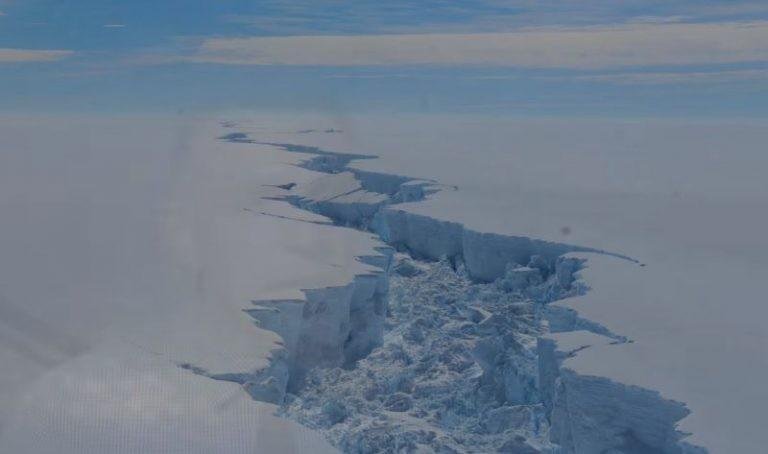The largest iceberg ever recorded, it has sprouted from Antarctica.
No doubt, we were surprised to learn that one of the largest icebergs in history has been separated from the Larsen C Ice Shelf. This occurred between Monday, July 10 and Wednesday, July 12, when a section of 5,800 square kilometers finally broke.
The gigantic 1-billion-ton ice block will begin to travel around the Antarctic continent. Once you reach the tip of the Antarctic Peninsula, you will continue traveling north, towards the Drake Passage, where it will dissipate.
Martin O'Leary, a Swansea glaciologist and Midas member, says that the rupture is a natural event and that there is no link to human-induced climate change. Although the rest will continue to regenerate naturally, researchers will follow their evolution with great attention, as in the coming months or years could again suffer further partitioning events.
According to experts, this event does not directly affect anyone, and if there are repercussions, they will not feel for years, however, it is a spectacular and huge geographic event that has changed the landscape.

El icebergs más grande que jamás ha sido registrado, se ha desprendido de la Antártida.
Sin duda alguna, nos ha sorprendido el saber que uno de los icebergs más grandes de toda la historia, se separó de la Plataforma de Hielo Larsen C. Esto ocurrió entre el lunes 10 de julio y el miércoles 12 de julio, cuando una sección de 5.800 kilómetros cuadrados, finalmente se rompió.
El gigantesco bloque de hielo de 1 billón de toneladas, comenzará a viajar alrededor del continente antártico. Una vez que llegue a la punta de la Península Antártica, continuará viajando hacia el norte, en dirección al Pasaje de Drake, donde se irá disipando.
Martin O’Leary, glaciólogo de Swansea y miembro de Midas, afirma que la ruptura es un evento natural y que no existe ningún vínculo con el cambio climático inducido por el hombre. Aunque el resto continuará regenerándose naturalmente, los investigadores seguirán su evolución con mucha atención, ya que en los próximos meses o años podría volver a sufrir nuevos eventos de partición.
Según los expertos, este evento no afecta directamente a nadie, y si hay repercusiones, no se sentirán durante años, sin embargo, es un espectacular y enorme evento geográfico que ha cambiado el paisaje.
Hoooo esto se ve peligrosoooooo
Claro puede provocar grandes cambios climáticos